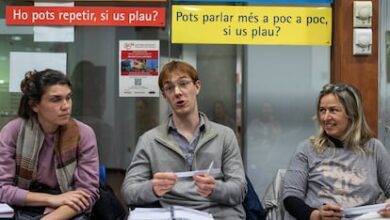
A scandal is erupting in Ponferrada over the municipal biomass heating system. Despite a court order to immediately cease operation of the boiler facility, city officials continue to provide heating to tens of thousands of residents. Mayor Marco Morala, supported by the PP, Vox, and Coalición por el Bierzo parties, has been slow to comply with the court ruling, arguing that the decision has not yet come into legal force.
The legal battle began back in 2017, when residents of the Compostilla district and environmental activists opposed the construction of the plant so close to residential buildings. They argued that the project was carried out without a proper environmental assessment and without the required permits for the heating network. The court sided with them, citing a lack of comprehensive environmental impact evaluation and violations in the licensing process.
Legal battles and the city administration’s stance
In 2021, the highest court in Castilla y León declared the facility illegal, noting that permits had been issued in violation of regulations. Nevertheless, city authorities tried to legalize the boiler’s operation by issuing partial environmental licenses, sparking renewed protests from residents. Last July, the court again ruled the administration’s actions unlawful and ordered the shutdown of the facility.
Nevertheless, the city hall and the regional company Somacyl appealed this decision, while residents and activists demanded immediate enforcement of the court ban, so as not to wait for a final verdict. The court sided with them, stating that any delay could lead to irreversible environmental damage and pose a risk to public health. Despite this, local authorities continue to operate the boiler house, arguing that there are no alternative heating sources for several municipal buildings.
Environmental and social risks
The court decision emphasizes that operating an industrial facility without the necessary environmental safeguards can cause serious harm to nature and local residents. The judge also noted that possible economic or organizational challenges for the city cannot justify breaking the law. The administration is required to find alternative heating solutions, even if this results in additional costs.
At the same time, city officials claim that the new heating system has enabled them to abandon outdated gas and diesel boilers, which has positively impacted the city’s economy and environment. However, the court believes that protecting the environment and public health must take priority over convenience and savings.
What lies ahead for Ponferrada
The situation in Ponferrada remains tense. City authorities continue to challenge the court ruling, while residents and activists are demanding its immediate enforcement. The future of the municipal heating system is still uncertain: if the city hall fails to comply with the court’s requirements, it could face new sanctions and lawsuits. For the city, this could result not only in financial losses but also in a loss of public trust.












